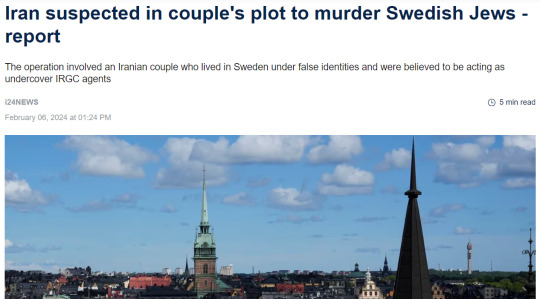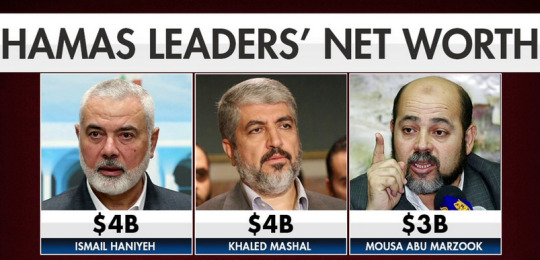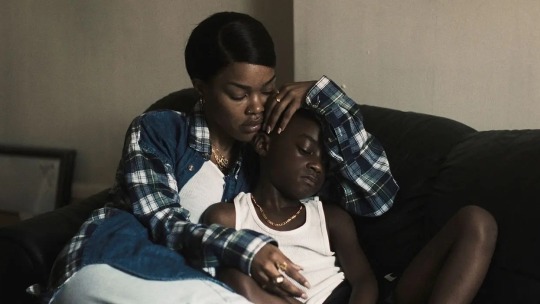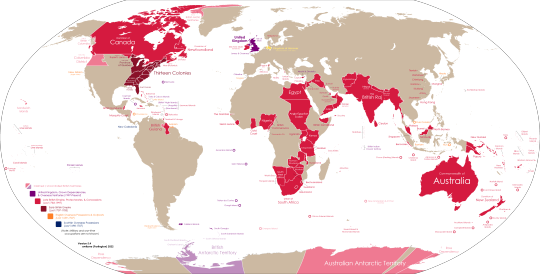#Afghan War’s last years
Text
Don’t Believe the Generals on Afghanistan
Don’t Believe the Generals on Afghanistan
A T-shirt that was popular with veterans for much of America’s nearly 20-year war in Afghanistan showed a helicopter in flight with the caption We Were Winning When I Left. U.S. generals seem to be the only ones who didn’t get the joke. On the first anniversary of our botched withdrawal, the military leaders most responsible for America’s disastrous outcome in Afghanistan have continued to loudly…
View On WordPress
#20-year war#Afghan army#Afghan forces#Afghan government#Afghan security forces#Afghan security forces’ size#Afghan War’s last years#Afghanistan#America#America’s disastrous outcome#blame#bulk of the blame#commanders of U.S. Central Command#Dont#Ernest Hemingway#first anniversary#former CIA director David Petraeus#fractured country#full withdrawal#General McKenzie#generals#Generals Frank McKenzie#image of our own military#inevitable chaos of the withdrawal#Joseph Votel#Kabul government’s forces#last year’s total withdrawal#military leaders#national Afghan army#nuances of Afghan politics
0 notes
Text
KABUL, Afghanistan (AP) — Bahara Rustam, 13, took her last class at Bibi Razia School in Kabul on Dec. 11 knowing it was the end of her education. Under Taliban rule, she is unlikely to step foot in a classroom again.
In September 2021, a month after U.S. and NATO troops withdrew from Afghanistan following two decades of war, the Taliban announced that girls were barred from studying beyond sixth grade.
They extended this education ban to universities in December 2022. The Taliban have defied global condemnation and warnings that the restrictions will make it almost impossible for them to gain recognition as the country’s legitimate rulers.
Last week, U.N. special envoy Roza Otunbayeva expressed concern that a generation of Afghan girls is falling behind with each day that passes.
Last week, an official in the Education Ministry said Afghan girls of all ages are allowed to study in religious schools known as madrassas, which have traditionally been boys-only. But Otunbayeva said it was unclear if there was a standardized curriculum that allowed modern subjects.
Bahara is holding onto her education and pores over textbooks at home. “Graduating (from sixth grade) means we are going to seventh grade,” she said. “But all of our classmates cried and we were very disappointed.”
There was no graduation ceremony for the girls at Bibi Razia School.
In another part of Kabul, 13-year old Setayesh Sahibzada wonders what the future holds for her. She is sad she can’t go to school anymore to achieve her dreams.
“I can’t stand on my own two feet,” she said. “I wanted to be a teacher. But now I can’t study, I can’t go to school.”
Analyst Muhammad Saleem Paigir warned that excluding women and girls from education will be disastrous for Afghanistan. “We understand that illiterate people can never be free and prosperous,” he said.
The Taliban have barred women from many public spaces and most jobs, all but confining women to their homes.
250 notes
·
View notes
Text
Update post:
Today marks 123 days since Hamas launched the war in Gaza with its massacre of Israeli civilians.
There were two terrorist attacks today in Israel, both stopped before anyone was injured. The first entails Palestinians from the West Bank shooting at a home in kibbutz Meirav in the Gilboa mountains (where the Israelite king Shaul and his sons died 3,000 years ago), the house was damaged, but no person was hurt. This kibbutz was attacked several times along 2023. The second was in the city of Shchem (you might know it as Nablus, the Arab mispronunciation of the Greek word 'Neapolis,' because Arabic doesn't have the sound 'p'), I'm attaching the pic of the gun and knife which were found on the terrorist after he was neutralized. I found reports about them on two Israeli websites (Ha'aretz and Now14), but both are in Hebrew. The latter also mentions a rock throwing terror attack earlier today, against the car of a woman named Rachel Yaniv. Her brothers, Halel and Yagel Yaniv, were murdered by Palestinian terrorists almost a year ago.

We got the info today on an Iranian attempt on the lives of Jewish leaders in Stockholm, that was stopped in 2021. These terrorists, believed to be linked to the IRGC, infiltrated Sweden under the guise of Afghan refugees, and were deported (rather than put on trial) in 2022. This is a small reminder that the Islamist axis led by Iran, and which includes the terrorist organizations it funds (including Hamas, Hezbollah and the Houthis), as well as countries that chose to align themselves with Iran against the west, such as Qatar, is not anti-Zionist, it IS antisemitic.

In an Israeli TV interview conducted in Arabic, an Israeli journalist asked the right hand man of Palestinian Authority's president Mahmoud Abbas, whether he's willing to denounce the Oct 7 massacre. He didn't. Instead, he insisted that the occupation is the source of all this violence (even though terrorist attacks against Jews in Israel by Arabs predate both the war in 1967, which used to be defined as the start of "the occupation," and the establishment of the State of Israel in 1948), and that as long as the occupation continues, so will such acts [as the Oct 7 massacre].
As part of the campaign against the antisemitism and bias at the BBC, an employee who called the Jews Nazis, and denied the Holocaust, has finally been fired.
youtube
Israel's most popular sketch comedy show decided to tackle UNRWA with this funny short vid:
In the segment where the UNRWA teacher shows how he teaches biology, history and English using Hitler's Mein Kampf, on the left side of the wall behind the "teacher" you can see the lyrics of a song titled Fedayeen (a term used for Egypt-funded Palestinian terrorists who attacked Israelis in the 1950's), and the pics of two Hamas leaders who are heading the war in Gaza now, Yahya Sinwar and Mohammed Deif ('deif' is a nickname, his real name is Mohammed al-Masri, a last name that literally means "the Egyptian," so guess where his family is originally from).
Jewish singer Montana Tucker proved she's the bravest artist from among countless performers who attended the biggest American entertainment award shows recently, as she wore an enlarged version of the yellow ribbon to bring the Israeli hostages back home to the Grammys. She didn't just speak up for her people, she made sure everyone would hear her. She's been regularly speaking up for Israelis and Jews since Oct 7.

The ceremony also included a nice gesture to the over 400 people in Israel who were either murdered at or kidnapped from the Nova music festival on Oct 7. Taylor Swift broke yet another music industry record, so this is a good time to remind everyone that there are several Hamas leaders who are each individually richer than her. It pays more to kill Jews, than to be one of the most successful musicians ever (her net worth is estimated at about 1 billion dollars).


This is 19 years old Idan Alexander.

His mom Yael recounted how cool he was in every given situation, and how proud his family was of him, when he told them that he intends to leave New Jersey and make Alyiah. Moving to Israel of course meant he'd have to serve in the army, too. On Oct 7, Yael got to talk to him, and hear that he has seen some horrible things already. She knew something was off, because unlike his usual behavior, he sounded stressed. Idan was kidnapped by Hamas, and it took 6 days before the family even learned whether he's alive or dead. He's been in captivity for 4 months now.
(for all of my updates and ask replies regarding Israel, click here)
#israel#antisemitism#israeli#israel news#israel under attack#israel under fire#terrorism#anti terrorism#hamas#antisemitic#antisemites#jews#jew#judaism#jumblr#frumblr#jewish#israelunderattack#Youtube
123 notes
·
View notes
Text
by Jake Wallis Simons
The Gray Lady even contrasted the two incidents in a way that painted the American atrocity favourably while casting Israeli intentions in doubt. The Kabul attack, it said, ‘came after a suicide bombing killed at least 182 people, including 13 American troops, during the frantic American withdrawal from the country. Under acute pressure to avert another attack, the US military believed it was tracking a terrorist who might imminently detonate another bomb. Instead, it killed an Afghan aid worker and nine members of his family.’
The Gaza strike, however, ‘adds fuel to accusations that Israel has bombed indiscriminately’, the New York Times said, pre-empting the results of the independent investigation with breathless speculation and a healthy dose of ‘confirmation bias’ of its own. The assumption could not be clearer: whereas the Americans were acting out of panic and confusion, the Israelis were either acting out of disregard for human life or straightforward bloodlust.
Civilian deaths, including those of aid workers, are a tragic reality of modern warfare. Sixty-two humanitarian workers lost their lives in combat zones last year. Although they were mostly killed at the hands of autocratic regimes and militias, during wartime they are also the casualties of democracies, including Britain.
During the Libyan civil war in 2011, when David Cameron had his hands on the joystick, 13 people were killed by a NATO airstrike, including an ambulance driver, three nurses and some friendly troops. (He did not, surprisingly, subject his own government to the type of rhetoric that he has recently been levelling at the Israelis over the mistaken Gaza strike.) That same week, NATO wiped out a family near Ajdabiya in the north of the country. This year, even the Danish military was forced to admit that its aerial assault had claimed the lives of 14 Libyan civilians.
The difference between attitudes towards most Western armed forces and the Israelis could not be sharper. According to the UN, the average combatant-to-civilian death ratio in war around the world is one to nine. When Britain, America and our allies battled Islamic State in Mosul in 2016-17, we achieved a much more respectable rate of about one to 2.5. In Gaza, Israel has done better still, reaching about one to 1.5, and possibly even less.
#double standards#civilian casualties#media bias#new york times#israel#gaza#hamas#humanitarian workers#civilian deaths#afghanistan
79 notes
·
View notes
Note
here is a poem by polish poet Zbigniew Herbert
Report From The Besieged City
Too old to carry arms and fight like the others -
they graciously gave me the inferior role of chronicler
I record - I don't know for whom - the history of the siege
I am supposed to be exact but I don't know when the invasion began
two hundred years ago in December in September perhaps yesterday at dawn
everyone here suffers from a loss of the sense of time
all we have left is the place the attachment to the place
we still rule over the ruins of temples spectres of gardens and houses
if we lose the ruins nothing will be left
I write as I can in the rhythm of interminable weeks
monday: empty storehouses a rat became the unit of currency
tuesday: the mayor murdered by unknown assailants
wednesday: negotiations for a cease-fire the enemy has imprisoned our messengers
we don't know where they are held that is the place of torture
thursday: after a stormy meeting a majority of voices rejected
the motion of the spice merchants for unconditional surrender
friday: the beginning of the plague saturday: our invincible defender
N.N. committed suicide sunday: no more water we drove back
an attack at the eastern gate called the Gate of the Alliance
all of this is monotonous I know it can't move anyone
I avoid any commentary I keep a tight hold on my emotions I write about the facts
only they it seems are appreciated in foreign markets
yet with a certain pride I would like to inform the world
that thanks to the war we have raised a new species of children
our children don’t like fairy tales they play at killing
awake and asleep they dream of soup of bread and bones
just like dogs and cats
in the evening I like to wander near the outposts of the city
along the frontier of our uncertain freedom.
I look at the swarms of soldiers below their lights
I listen to the noise of drums barbarian shrieks
truly it is inconceivable the City is still defending itself
the siege has lasted a long time the enemies must take turns
nothing unites them except the desire for our extermination
Goths the Tartars Swedes troops of the Emperor regiments of the Transfiguration
who can count them
the colours of their banners change like the forest on the horizon
from delicate bird's yellow in spring through green through red to winter's black
and so in the evening released from facts I can think
about distant ancient matters for example our
friends beyond the sea I know they sincerely sympathize
they send us flour lard sacks of comfort and good advice
they don’t even know their fathers betrayed us
our former allies at the time of the second Apocalypse
their sons are blameless they deserve our gratitude therefore we are grateful
they have not experienced a siege as long as eternity
those struck by misfortune are always alone
the defenders of the Dalai Lama the Kurds the Afghan mountaineers
now as I write these words the advocates of conciliation
have won the upper hand over the party of inflexibles
a normal hesitation of moods fate still hangs in the balance
cemeteries grow larger the number of defenders is smaller
yet the defence continues it will continue to the end
and if the City falls but a single man escapes
he will carry the City within himself on the roads of exile
he will be the City
we look in the face of hunger the face of fire face of death
worst of all - the face of betrayal
and only our dreams have not been humiliated
❤️❤️
46 notes
·
View notes
Text
Every now and then I play a game in my head called "How would you win 9/11?" Not in the Mark Wahlberg sort of way but from the perspective of "if I were not a neocon ghoul, how would I handle this and avoid/postpone the sandbox forever war?"
Hard mode: Bin Laden has to still escape the battle of Tora Bora alive.
Extreme mode: you still have to invade Iraq at the behest of Reagan Era advisors still mad about Iran 30 years ago.
Easy mode I would just play the PR machine hard with the launch of Enduring Freedom. Like Panama, I'd hit hard and all at once with a coordinated force. The American people would need blood quick, and looking like a strong president is imperative for your first term, especially after such a hit to the American Ego.
Definitely approving the Ranger battalion's deployment to Tora Bora is the best path here, but the key is to pull out just as fast as we went in once we get our guy. Keep it feeling fresh, like Panama or Desert Storm. Afghanistan frankly has very little advantages for any army (according to most imperialist conquests of the area) so leave the government to the people that live there. The important part is that Americans feel that NYC has been avenged.
Hard mode means you don't get Bin Laden til 2011 as per current day, and therefore need to do a bit more cleanup during enduring freedom. Frankly my methodology here isn't much different than the current US anti-terror doctrine of airstrikes and deploying elite squads for night raids.
When you're fighting an asymmetrical war, using small units and remote explosions to hit key points (putting the "terrorism" in "counterterrorism") and match guerrilla fighters both costs less and beats the bad publicity of shipping corpses not old enough to drink home in flag wrapped caskets.
A low-impact campaign (read: less of a full on occupation) like this with US logistical support (and the input of people who're actually experts in Afghan geopolitics) would hopefully allow the US to avoid the protracted war with the insurgency that lasted literally 20 years and ended with the Taliban stronger than ever. Give it a couple years, call it a success, and hunt down the big guy until you get him in 2011.
Extreme mode isn't ideal (We shouldn't have been in iraq) but putting Bremer in control was really the nail in the coffin. I would demote him to janitor and find someone who understood the situation instead. Why build a highway next to an existing road? The obvious way to rebuild a country you bombed into fine gravel is to take advantage of the infrastructure you left behind.
I personally would've avoided treating Ba'athism like we could just denazify iraq, and rather pull key leadership and left the rest relatively intact so as to better rebuild the country. Allowing the military to remain standing (and in fact work as a method of reconstruction) and set up a client state that could keep Iran on its toes, sort of like how Iraq was before Desert Storm. Which still wouldn't be ideal but at least we'd significantly lower the chances of outright spawning ISIS through American cultural and administrative incompetence. There are no good imperialist wars but there are ways to not completely bungle it too.
17 notes
·
View notes
Text
My 25 Favorite Films of 2023
It's that time of year again! Here are my top 25 films of 2023.
25. Joy Ride

Following in the footsteps of Bridesmaids and Girls Trip, Joy Ride offers some of the biggest laughs of 2023 proving once again women can be just as raunchy as men. The cast includes up-and-comers Ashley Park, Oscar nominee Stephanie Hsu, and a scene-stealing breakthrough performance from Sherry Cola. Joy Ride marks a strong debut from writer-director Adele Lim.
24. Theater Camp

Anyone who had aspirations of becoming an actor can relate to Theater Camp, a mockumentary about the staff of a theater camp struggling to keep it afloat. Molly Gordon, Ben Platt, and Noah Galvin lead both behind and in front of the camera in this superb comedy that will leave you singing from the rooftops.
23. A Thousand and One

A Thousand and One is a heartbreaking indie film about a mother's desperate effort to form a bond with her estranged son by kidnapping him from the foster care system following her stint in prison. Teyana Taylor packs an emotional punch with her crushing performance with the help of A.V. Rockwell in her feature debut as a writer-director.
22. Thanksgiving

Eli Roth's filmography in horror is a mixed record, but his latest flick Thanksgiving may be his best work yet. Not only is it a solid slasher with great over-the-top killings, its brilliantly hilarious. In a time where horror franchises can be tiresome, Thanksgiving is one that could call for a second or third helping.
21. Somewhere in Queens

TV icon Ray Romano makes his feature directorial debut in the family comedy Somewhere in Queens. He stars as the father of a promising high school basketball player who goes through perhaps desperate means to assure he lands a college scholarship. Joined by the wonderful Laurie Metcalf, Somewhere in Queens has plenty of laughs as well as plenty of heart.
20. Dream Scenario

The remarkable comeback of Nicolas Cage continues with his brilliant performance in Dream Scenario, a dark fantasy horror comedy in which he plays a college professor who inexplicably starts appearing in everyone's dreams, sparking a national phenomenon that will ultimately take a personal toll. Cage balances the absurdity of the situation his character is in with emotional heft that comes with it. This marks Norwegian filmmaker Kristoffer Borgli's first English-language film and based on how well-executed Dream Scenario is, hopefully it won't be his last.
19. The Covenant

Guy Ritchie's latest The Covenant is a heart-pounding war film based on the true story of Sgt. John Kinley's rescue effort of his Afghan interpreter Ahmed. Jake Gyllenhaal and Dar Salim make a perfect duo in this dramatic, suspenseful film that may be Ritchie's strongest work to date.
18. Are You There God? It’s Me, Margaret.

Judy Blume's 1970 adolescent classic Are You There God? It’s Me, Margaret. finally made its way to the big screen this year in the heartwarming coming-of-age tale of a girl's awkward journey from childhood to adulthood as well as the complexities that come from being an interfaith household. Abby Ryder Fortson shines as the titular Margaret in an outstanding performance not often seen from child actors. Also, we need more Rachel McAdams.
17. BlackBerry

Arguably the biggest surprise of 2023, BlackBerry offers some of the best laughs in the comedic retelling of the rise and fall of the iconic BlackBerry device. BlackBerry is a showcase of talent of its star Jay Baruchel, Matt Johnson (who also directed and co-wrote the film), and Glenn Howerton of It's Always Sunny fame, easily giving one of the best on-screen performances of the entire year.
16. You Hurt My Feelings

Writer-director Nicole Holofcener reunites with her Enough Said star Julia Louis-Dreyfus with You Hurt My Feelings, which centers a turbulent chapter in a couple's marriage after a novelist overhears her husband mocking her latest book. The dramedy examines the thought-provoking nuances of how fully honest one actually should be with their spouse (the answer may surprise you!). The greatest strength from Holofcener's latest is how its humor comes naturally from the reality of relationships.
15. Mission: Impossible - Dead Reckoning Part One

Mission: Impossible does the unthinkable in Hollywood: keeping a franchise in top-notch shape. Dead Reckoning Part One, the whopping *seventh* installment of the Ethan Hunt saga, delivers on a compelling plot and incredible action sequences, all of which is cemented by the star power of Tom Cruise, who has carried this spy franchise for nearly 20 years. There have been hints that Dead Reckoning may be the beginning of the end for Mission: Impossible, and if that's the case, it's going out with a bang.
14. Talk to Me

The best horror movie of 2023, Talk to Me is a chilling film about a group of teenager's ill-fated decision of doing a viral challenge of interacting with the dead, only to mistakenly leave the portal open between the living and the spirit world. What makes Talk to Me work is the family drama at the core of the film and the powerful performance from its troubled heroine Sophie Wilde.
13. Sisu

Inglorious Basterds meets Mad Max: Fury Road meets John Wick, Sisu is a WWII-era revenge action flick about a gold prospector's quest to retrieve the gold that was stolen from him from a group of Nazis. Full of brutal, bloody fight sequences with a twisted sense of humor, Sisu is one helluva ride.
12. Creed III

Creed III is a throwback to the era where Hollywood blockbusters were able to provide complete satisfaction. The latest installment of the Rocky spin-off franchise marked the strong directorial debut of its star Michael B. Jordan and also may have sadly marked the final film of the incredibly talented Jonathan Majors, whose recent assault conviction may be a knockout punch to an otherwise booming career.
11. May December

Often having vibes of a soap opera, Todd Haynes' May December is a compelling and at times disturbing film of an actress (played by Natalie Portman) who shadows the woman she's depicting in a film (played by Julianne Moore) famous for her 90s love affair with a then 13-year-old, who later became her husband. Despite the powerhouse performances from the two Oscar winners, the film really belongs to rising star Charles Melton, whose character finally comes to grips with the trauma he unknowingly endured as a child. And Melton's performance is among 2023's best.
10. Anatomy of a Fall

We don't often get great courtroom dramatic thrillers these days which is why Anatomy of a Fall really stands out. German actress Sandra Hüller gives a breakthrough performance as a wife and mother who becomes the prime suspect in what authorities believe is the murder of her husband, who had fallen to his death from the attic window. With plenty of twists and turns, Anatomy of a Fall will keep viewers guessing throughout.
9. Maestro

Not only does Bradley Cooper give the performance of his career, he has also shown his ability to direct is no fluke. Maestro, a biopic that spotlights the personal drama of legendary composer Leonard Bernstein, is a beautifully-shot, well-acted film that solidifies Cooper as one of Hollywood's newest talented filmmakers.
8. Spider-Man: Across the Spider-Verse

One would assume that a Spider-Man cartoon would solely be geared towards children but Spider-Man: Across the Spider-Verse is such a sophisticated film between its complex plot and the remarkable animation that are a continuation from its 2018 Into the Spider-Verse predecessor. Between a strong voice cast, an amazing score and a brilliant cliffhanger, Across the Spider-Verse was the shining gem of the many superhero duds 2023 had to offer.
7. Killers of the Flower Moon

At 81-years-old, legendary director Martin Scorsese hasn't lost his step with Killers of the Flower Moon, his best film in at least a decade. The crime drama is based on a true story on the 1920s murders of members of Osage Nation and its ties to the marriage Ernest Burkhart and Mollie Kyle, played by the reliably gifted Leonardo DiCaprio and powerful newcomer Lily Gladstone.
6. Saltburn

Following her strong debut with 2020's Promising Young Woman, filmmaker Emerald Fennell makes a valiant return with her twisted comedic psychological drama Saltburn, which surrounds an Oxford student who is quickly embraced by the wealthy family of a classmate and the jarring fallout as a result. Barry Keoghan (The Banshees of Irisherin, Dunkirk) proves he's more than capable of being the leading man and is joined by rich ensemble including Rosamund Pike, Jacob Elordi, Richard E. Grant and Carey Mulligan. With stunning visuals and some of the most shocking things you'll see onscreen in 2023, Saltburn is a stirring work of art.
5. The Holdovers

It's been a long time since a new Christmas movie can live up to beloved holiday classics and Alexander Payne makes the closest effort with The Holdovers, a 1970-set dramedy about a miserable teacher at a boys academy who is stuck essentially babysitting the "holdover" students who didn't go home for the holidays. Joining the always-brilliant Paul Giamatti is newcomer Dominic Sessa as his troublesome student and Da'Vine Joy Randolph, who gives a powerful Oscar-worthy performance as the cook mourning over the loss of her son. The Holdovers is the perfect film to warm your heart over the holidays this year and every year going forward.
4. Past Lives

Perhaps one of the more unsung heroes of 2023 cinema, Past Lives is a touching story about love and what if. Greta Lee stars in a breakout role as a married woman who rekindles a relationship with a childhood friend from South Korea but rather than going down the typical "will they, won't they" or "love triangle" paths this film easily could've taken, Past Lives delves into the emotional complexities with such tenderness that only writer/director Celine Song could've told (the film is semi-autobiographical).
3. Oppenheimer

If anyone knows how to make a biopic an epic, it's Christopher Nolan. Oppenheimer is essentially two films rolled into one- a tick-tock thriller about the creation of the atomic bomb as well as a political drama that J. Robert Oppenheimer endured. Cillian Murphy gives the performance of his career and leads a gigantic ensemble cast in a film that despite its 3-hour running time goes by fast. And while Barbie may have won the box office battle, Oppenheimer certain won the war in more ways than one.
2. Polite Society

Polite Society is a brilliant action comedy following an aspiring stuntwoman who believes her sister is marrying into a sinister family. In the style of a Tarantino movie, up-and-coming filmmaker Nida Manzoor makes a strong feature debut that is the epitome of a fun popcorn movie, which have been in short supply in recent years.
Poor Things

Yorgos Lanthimos has quickly risen as of the strongest filmmakers of this generation, proving so once again with his latest film Poor Things. Emma Stone gives an Oscar-worthy performance as a woman brought back to life who embarks on a journey of self-discovery and autonomy and is accompanied by an excellent supporting cast. Like a modern-day Tim Burton, Lanthimos was able to create a mesmerizing universe with incredible production design, a whimsical music score, and stunning cinematography. Going to the movies is meant to be an escape, and Poor Things perfectly encapsulates that.
#2023#Poor Things#Emma Stone#Spider-Man#across the spiderverse#oppenheimer#Past Lives#May December#Natalie Portman#julianne moore#charles melton#Theater Camp#Saltburn#jacob elordi#Polite Society#Bradley Cooper#carey mulligan#The Holdovers#Tom Cruise#killers of the flower moon#leonardo decaprio#Martin Scorsese#christopher nolan#miles morales#joy ride#barry keoghan#molly gordon#Ben Platt#oscars
40 notes
·
View notes
Text
WaPo - Pentagon opens sweeping review of clandestine psychological operations
Complaints about the U.S. military’s influence operations using Facebook and Twitter have raised concern in the White House and federal agencies.[...]
The Pentagon has ordered a sweeping audit of how it conducts clandestine information warfare after major social media companies identified and took offline fake accounts suspected of being run by the U.S. military in violation of the platforms’ rules.
Colin Kahl, the undersecretary of defense for policy, last weekinstructed the military commands that engage in psychological operations online to provide a full accounting of their activities by next month after the White House and somefederal agencies expressed mounting concerns over the Defense Department’s attempted manipulation of audiences overseas, according to several defense and administration officials familiar with the matter.
The takedowns in recent years by Twitter and Facebook of more than 150 bogus personas and media sites created in the United States was disclosed last month by internet researchers Graphika and the Stanford Internet Observatory. While the researchers did not attribute the sham accounts to the U.S. military, two officials familiar with the matter said that U.S. Central Command is among those whose activities are facing scrutiny. Like others interviewed for this report, they spoke on the condition of anonymity to discuss sensitive military operations.
The researchers did not specify when the takedowns occurred, but those familiar with the matter said they were within the past two or three years. Some were recent, they said, and involved posts from the summer that advanced anti-Russia narratives citing the Kremlin’s “imperialist” war in Ukraine and warning of the conflict’s direct impact on Central Asian countries.[...]
Centcom, headquartered in Tampa, has purview over military operations across 21 countries in the Middle East, North Africa and Central and South Asia. A spokesman declined to comment. [...]
Spokespersons for Facebook and Twitter declined to comment.
According to the researchers’ report, the accounts taken down included a made-up Persian-language media site that shared content reposted from the U.S.-funded Voice of America Farsi and Radio Free Europe. Another, it said, was linked to a Twitter handle that in the past had claimed to operate on behalf of Centcom.
One fake account posted an inflammatory tweet claiming that relatives of deceased Afghan refugees had reported bodies being returned from Iran with missing organs, according to the report. The tweet linked to a video that was part of an article posted on a U.S.-military affiliated website.
Centcom has not commented on whether these accounts were created by its personnel or contractors. If the organ-harvesting tweet is shown to be Centcom’s, one defense official said, it would “absolutely be a violation of doctrine and training practices.”
Independent of the report, The Washington Post has learned that in 2020 Facebook disabled fictitious personas created by Centcom to counter disinformation spread by China suggesting the coronavirus responsible for covid-19 was created at a U.S. Army lab in Fort Detrick, Md., according to officials familiar with the matter. The pseudo profiles — active in Facebook groups that conversed in Arabic, Farsi and Urdu, the officials said — were used to amplify truthful [sic] information from the U.S. Centers for Disease Control and Prevention about the virus’s origination in China.
The U.S. government’s use of ersatz social media accounts, though authorized by law and policy, has stirred controversy inside the Biden administration, with the White House pressing the Pentagon to clarify and justify its policies. The White House, agencies such as the State Department and even some officials within the Defense Department have been concerned that the policies are too broad, allowing leeway for tactics that even if used to spread truthful information, risk eroding U.S. credibility, several U.S. officials said.
“Our adversaries are absolutely operating in the information domain,” said a second senior defense official. “There are some who think we shouldn’t do anything clandestine in that space. Ceding an entire domain to an adversary would be unwise. But we need stronger policy guardrails.” [Editor's Note: Lolling & Lmaoing]
A spokeswoman for the National Security Council, which is part of the White House, declined to comment.
Kahl disclosed his review at a virtual meeting convened by the National Security Council on Tuesday, saying he wants to know what types of operations have been carried out, who they’re targeting, what tools are being used and why military commanders have chosen those tactics, and how effective they have been, several officials said.
The message was essentially, “You have to justify to me why you’re doing these types of things,” the first defense official said.
Pentagon policy and doctrine discourage the military from peddling falsehoods, but there are no specific rules mandating the use of truthful information for psychological operations. For instance, the military sometimes employs fiction and satire for persuasion purposes, but generally the messages are supposed to stick to facts, officials said.
In 2020, officers at Facebook and Twitter contacted the Pentagon to raise concerns about the phony accounts they were having to remove, suspicious they were associated with the military. That summer, David Agranovich, Facebook’s director for global threat disruption, spoke to Christopher C. Miller, then assistant director for Special Operations/Low Intensity Conflict, which oversees influence operations policy, warning him that if Facebook could sniff them out, so could U.S. adversaries, several people familiar with the conversation said.
“His point‚” one person said, “was ‘Guys, you got caught. That’s a problem.’ ”[...]
With the rise of Russia and China as strategic competitors, military commanders have wanted to fight back, including online. And Congress supported that. Frustrated with perceived legal obstacles to the Defense Department’s ability to conduct clandestine activities in cyberspace, Congress in late 2019 passed a law affirming that the military could conduct operations in the “information environment” to defend the United States and to push back against foreign disinformation aimed at undermining its interests. The measure, known as Section 1631, allows the military to carry out clandestine psychological operations without crossing what the CIA has claimed as its covert authority, alleviating some of the friction that had hindered such operations previously.
“Combatant commanders got really excited,” recalled the first defense official. “They were very eager to utilize these new authorities. The defense contractors were equally eager to land lucrative classified contracts to enable clandestine influence operations.”[...]
Last year, with a new administration in place, Facebook’s Agranovich tried again. This time he took his complaint to President Biden’s deputy national security adviser for cyber, Anne Neuberger. Agranovich, who had worked at the NSC under Trump, told Neuberger that Facebook was taking down fake accounts because they violated the company’s terms of service, according to people familiar with the exchange.
The accounts were easily detected by Facebook, which since Russia’s campaign to interfere in the 2016 presidential election has enhanced its ability to identify mock personas and sites. In some cases, the company had removed profiles, which appeared to be associated with the military, that promoted information deemed by fact-checkers to be false, said a person familiar with the matter.
Agranovich also spoke to officials at the Pentagon. His message was: “We know what DOD is doing. It violates our policies. We will enforce our policies” and so “DOD should knock it off,” said a U.S. official briefed on the matter.
In response to White House concerns, Kahl ordered a review of Military Information Support Operations, or MISO, the Pentagon’s moniker for psychological operations. A draft concluded that policies, training and oversight all needed tightening, and that coordination with other agencies, such as the State Department and the CIA, needed strengthening, according to officials.
The review also found that while there were cases in which fictitious information was pushed by the military, they were the result of inadequate oversight [sic] of contractors and personnel training — not systemic problems [sic], officials said.
Pentagon leadership did little with the review, two officials said, before Graphika and Stanford published their report on Aug. 24, which elicited a flurry of news coverage and questions for the military.
The State Department and CIA have been perturbed by the military’s use of clandestine tactics. Officers at State have admonished the Defense Department, “Hey don’t amplify our policies using fake personas, because we don’t want to be seen as creating false grass roots efforts,” [sic] the first defense official said.
One diplomat put it this way: “Generally speaking, we shouldn’t be employing the same kind of tactics that our adversaries are using because the bottom line is we have the moral high ground [sic]. [...] We promote [our set of] values around the world and when we use tactics like those, it just undermines our argument about who we are.”
Psychological operations to promote U.S. narratives overseas are nothing new in the military, but the popularity of western social media across the globe has led to an expansion of tactics, including the use of artificial personas and images — sometimes called “deep fakes.” The logic is that views expressed by what appears to be, say, an Afghan woman or an Iranian student might be more persuasive [!] than if they were openly pushed by the U.S. government. [...]
A key issue for senior policymakers now is determining whether the military’s execution of clandestine influence operations is delivering results. “Is the juice worth the squeeze? Does our approach really have the potential for the return on investment we hoped or is it just causing more challenges?” one person familiar with the debate said.[...]
Clandestine influence operations have a role in support of military operations, but it should be a narrow one with “intrusive oversight” by military and civilian leadership, said Michael Lumpkin, a former senior Pentagon official handling information operations policy and a former head of the State Department’s Global Engagement Center. “Otherwise, we risk making more enemies than friends.”
19 Sep 22
252 notes
·
View notes
Text
Flügel / A Kaleidoscope of Life ~ Moon 2023

4.5-year awaited Grand Theater return on September 22 (before things) ft. my eyes dead from the unseasonable heat and yet another failed attempt to get my FLYING SAPA REFUND FROM 2020 THAT THEY STILL OWE ME.
This, unexpectedly, turned out to be the hands-down Takarazuka highlight of Tadaima ’23, and that’s… despite a play of extremely questionable content. Tsukigumi—Mugen Musou / Krung Thep—had the honor of being my last live Takarazuka before the shit hit the fan globally, and the troupe is such different vibes I felt like I stepped through a portal (not that Yukigumi isn’t, dear lord, but small theaters are always a little weird vibe-wise). I had a feeling this would be my first and last live top Tsukishiro Kanato, and she did indeed announce taidan days later. We have no shortage of 95th top stars, but, since I was a hardcore Yukigumi fan ten years ago, Reiko is the only one I’ve been closely following since her shinko days. She’s gotten so good, and every time I’ve watched her since the Romance Gekijou stream, I’ve seen in her movements and expressions that she's absolutely watched Komu on repeat in her moments of doubt. It makes my heart sing.
FLÜGEL SPOILERS (can’t believe I’m saying this again, but cw suicide, also nazis 🙄):
If you’ve ever thought to yourself, “Gee, you know whose take I’d love on the politics of a divided Germany? TAKARAZUKA’S,” well, maybe this show is for you! It’s the 1980s (although you wouldn’t know it till they bust a hole through the Wall… they really dropped the ball on costuming) and Jonas (Reiko) is a GDR officer who grew up thinking his mother (Shirayuki Sachika) was a nazi after she was arrested in his childhood for war crimes and they were separated on opposite sides of the partitioned country. After we open with a completely historically inaccurate scene from the Russian Afghan war (just SCREAMS Takarazuka, doesn’t it?), Jonas is put in charge of overseeing an East German concert featuring wildly popular West German idol Nadia (Umino Mitsuki), while other GDR officer Helmut (Houzuki An) is tasked with keeping an eye on them/preventing spying or something (idk, this plot doesn’t hold a ton of water to be honest). The general conflict is that Team Reiko is pro-unification, and Team Chinatsu is staunchly anti. Amidst a flurry of various activities that realistically would have gotten Jonas thrown in the gulag 1000 times over—including helping old war buddy?? Amashi Juri escape to West Germany via an underground route operated by Irodori Michiru and Haon Mika—Team Helmut attempts to dampen pro-unification sentiment by plotting a terrorist attack at the concert (in the form of an exploding microphone) and pinning it on a priest (Yumena Rune) and his band of peaceful student protestors. Thanks to Jonas and Luis Wagner (Kazama Yuno), who is Nadia’s manager and also secretly the best spy in the world or something, the mic is retrieved and the plan is thwarted. When Nadia returns to West Germany, she is moved to become a pro-unification activist thanks to the friends she made on the other side, and leads a protest that results in breaking the wall down. Helmut, unable to cope with the defeat of his ideology, takes his own life quite dramatically (so be aware of that). After travel is permitted between east and west, Jonas discovers that his mother (aging with dementia), while employed by the nazis, actually used her position to help Jews escape. Jonas and Nadia don’t fall in love, but they do look off into the sky together in hope and friendship.
I really did not care for this plot, yet somehow I also didn’t absolutely hate watching it. I think there were enough isolated highlights to make the experience worth it:
I! Love! Reiko! And I’m so happy I got to see her as top once! And her voice is fantastic lately!
Reiko and Chinatsu have an unexpectedly compelling chemistry
Chinatsu has an unexpected chemistry with me and my feelings
The final protest scene (set to a dramatic rendition of Ode to Joy) features Chinatsu repeatedly trying to hit Reiko, while Reiko just blocks all her punches and stares straight into her eyes. It’s a lot.
I had similar feelings watching Oda as I did watching Agachin; she wore those 4.5 years loud and proud. +1000 confidence, absolutely ready for her nibante era.
Nice little send off role for Ren Tsukasa, who is ABSOLUTELY BELOVED. People cheered the theater down for her, it was genuinely moving. No one in anything else I saw got that much applause except for maybe Kaiho Naoto.
KALEIDOSCOPE SPOILERS:
This, brainchild of Kurita-sensei making her revue debut, was the revue of the year, and probably the revue of all pandemic era for me. It was fresh, it had a theme, the music slapped, it actually called back a little to Ogita-sensei who I will miss in tkz until the end of time. LET WOMEN MAKE REVUES!!
The premise is a journey through different eras of Tokyo, triggered by the turn of a magic kaleidoscope. Each era’s scene is beautifully designed, and has a little self-contained plot. The transitions are seamless, and I loved the song choices (CITY! POP! CHUUZUME!). Tsukigumi as a whole is vocally outstanding right now, and the impact was awesome. Verbal descriptions don’t do it justice! If you’re tired of Fujii/Saitou/Nakamura B throwing all their old scenes into a tumble dyer and pulling them back out in a random order, watch Kaleidoscope, even if you aren’t a fan of Tsukigumi.
26 notes
·
View notes
Photo

Comprehensive map of the British Empire - its colonies, territories, protectorates and more.
by u/awtizme
This map includes all the colonies, territories, protectorates, dependencies, concessions, and personal unions of England, Scotland, Great Britain and later the United Kingdom from 1559-1997. Military occupations such as West Germany however, are excluded. Any suggestions or corrections are, of course welcome. (Note: there are plenty of grey areas of what is and is not considered a part of the Empire and so some judgment calls must be made)
Frequently Asked Questions:
Where are England’s possessions in France?
1559 is the map’s start date, one year after the Siege of Calais and the last part of mainland France to be lost. (I chose this date deliberately to avoid arguments over whether the Angevin Empire was French or English, among other things).
Why are Nepal & Bhutan included?
After Nepal’s defeat in the Anglo-Nepalese War in 1816, they signed the “Sugauli Treaty”, requiring Nepal to consult the British government on some foreign policy matters. The treaty made Nepal essentially a de facto protectorate of the British Empire, with a similar arrangement made with Bhutan in 1910. Britain eventually recognised the independence of Nepal in 1923 and Bhutan in 1947.
Why is Afghanistan included?
Afghanistan became a protectorate in 1879 after its defeat in the 2nd Anglo-Afghan War; this lasted until the 3rd Anglo-Afghan War in 1919.
169 notes
·
View notes
Text
On 15 August 2021, one year ago this Monday, the city of Kabul fell to the Taliban. I’m marking this anniversary because it is an event that shattered the lives of so many people I know— people who continue to persevere in the face of fear, despair, uncertainty, and grief.
A huge amount of journalism has been produced about the U.S.-coalition withdrawal, the fall of Kabul, the abandonment of Afghans, and the humanitarian crisis that is ongoing in Afghanistan right now. Here, I’ve gathered just a few pieces that I particularly recommend. Please consider reading these.
George Packer: “The Betrayal.” The Atlantic.
ProPublica: “Hell at Abbey Gate: Chaos, Confusion, and Death in the Final Days of the War in Afghanistan.” ProPublica
Eliza Griswold. “The Afghans America Left Behind.” The New Yorker.
Dan Lamothe and Alex Horton. “Documents reveal U.S. military’s frustration with White House, diplomats over Afghan evacuation.” Washington Post.
Ben Smith: “How the U.S. Helped, and Hampered, the Escape of Afghan Journalists.” The New York Times.
James Landale and Joseph Lee: “Afghanistan: Foreign Office chaotic during Kabul evacuation - whistleblower.” BBC.
Mark Townshend: “‘Shameful’: Afghans who helped UK abandoned to a life of fear under the Taliban.” The Guardian.
“Last Days in Afghanistan: Reflections on the U.S. Withdrawal.” The New York Times.
Christina Goldbaum and David Zucchino: “Taliban Rewind the Clock: ‘A Woman is a Helpless and Powerless Creature’” The New York Times.
Alive in Afghanistan: a ProPublica initiative to continue covering stories from Afghanistan.
Zan Times: A woman-led human rights-focused news site covering life in Afghanistan under the Taliban.
***
I don’t want to participate in the portrayal of Afghanistan, and Afghans, as exclusively a nation and people of suffering. Some of the funniest people I have known in my life are Afghan. The Afghan students I know have continued posting on Facebook and TikTok even as their nation fell and they became refugees. They write poems. They read poems. They make memes. We should care about Afghanistan not because it is so extraordinarily indigent or abject in some sense, but because it is not: because there is so much to it that is lost through the act of not-caring.
233 notes
·
View notes
Text
15-year-old Hazara activist who narrowly escaped the Taliban takeover of Afghanistan, Nila Ibrahimi, addresses the 15th Annual Geneva Summit for Human Rights and Democracy – see below for her remarks.
Full Remarks
Good morning everyone.
I’m incredibly honored to be here today with you at the Geneva Summit. Thank you so much for giving me the opportunity to share my story.
It was August 15, a beautiful sunny day that soon turned dark and cloudy, casting a shadow over the lives of millions of Afghans, especially the girls and women of my homeland. I had woken up early to study for my last mid-year exam at school, scheduled for the next day.
A few hours after breakfast, my mother heard from the neighbours that the Taliban had reached Dasht-e-Barchi, the district where we lived, and may take over Kabul soon. My mother had lived through the civil war and the first Taliban regime and had made me understand how miserable and frightening that tyranny was. And now, her worried eyes and shaky hands made me even more scared.
We ran to destroy our family documents that could put our lives at risk, because it was expected that the Taliban would conduct house to house searches. My father, a former government worker, passed away a month after I was born so the photos, uniforms, and documents were the only memories I had of him. As I watched them burn and turn to ashes, it was as if they had never existed, as if he had never existed. My school certificates as well; I felt so angry and sad to be told to destroy them that I decided to take the risk of keeping them. I knew all of this was only the first spark of a fire that was about to consume our whole lives.
The weight of the situation was overwhelming, and fear took hold of me. My mother is a great person, but she belongs to the generation of women who were subjugated by the Taliban. This created in them a mindset that they had no right to say no, no right to protest or stand up for themselves. They were made to feel like they were incomplete human beings without a man. Now, there were rumours that the Taliban would marry young girls. I felt helpless and scared for what the future held.
I am Nila Ibrahimi, a 16-year-old women’s rights activist. My journey of advocacy started when the Kabul Education Directorate banned schoolgirls over the age of 12 from singing in public. As a member of the Sound of Afghanistan Music Group, I found this decision disappointing and aggravating. We were singing for peace, women’s rights, and humanity on different stages and well-known TV channels. In some parts of the world, there are societies that welcome teenage girls who are using their voices to make changes; however, when I heard about the ban, I realized a sad fact about my society: There were people who wanted to silence me solely because of my gender. I had to stand up for my rights for the first time in my life. So, I recorded a video of me singing a song as a call to action for all girls and women. Murtaza, my brother, posted it on social media, alongside the #IAmMySong, and it soon went viral. The movement successfully reversed the decision.
Later that year, before the fall of Kabul, I was watching President Joe Biden’s briefing on TV regarding his country’s withdrawal from Afghanistan. I vividly recall him sharing a story about his visit there, where he had conversations with several girls. One of them had told him: “If you leave Afghanistan, I will no longer be able to pursue my desire to become a doctor.” She urged him not to abandon Afghanistan. Upon hearing this, tears welled up in my eyes, and my heart splintered, as I could truly empathize with her feelings. She understood the imminent situation and was desperate to hold onto her dreams. Unfortunately, her plea fell on deaf ears. As a 16-year-old, of course I am not aware of all the political complexities, but why couldn’t the US have at least negotiated some form of peace instead of abandoning the country without any resolution?
So now, the dream of that girl, along with the dreams of millions of other girls and women, were shattered overnight when the US and the international community abandoned Afghanistan. The Taliban, a group with a regressive mindset that deems being a girl or woman a crime, took control in a chaotic and shocking manner.
To capture my emotions, allow me to share an excerpt from my diary written the day after Kabul fell, “It doesn’t matter when I wake up anymore, because I cannot close my eyes at night. I see everyone terrified of an uncertain future. At breakfast, no one speaks. After breakfast, I don’t know what I am supposed to do. I can’t study. Why should I study now if I am not allowed a future? Humanity is dead all over the world and I am tired of everything. In our airport, people died from stress, heat stroke, dehydration, from being crushed in their desperation to get out. Taliban are everywhere. Some people say they are going to go to every single house to search for guns or take some girls. I am wearing a long dress and covering my face. Am I going to be forced to cover my face all my life? Am I going to be locked up in my home forever?”
Five days after the fall, my family decided to flee to Pakistan. We were lucky. After eight tense months, the 30 Birds Foundation helped us resettle in Canada. While I feel safer in my new home, every single day, I think of those girls left behind in Afghanistan; left with no hope. In Canada, I make decisions about my life, and embrace the person I aspire to be. But, what about them?
As I stand here today, I want the world to know that girls have been out of school for 640 days. Universities are also closed off to them. Women have been stripped of everything, their education, their freedom of movement, their right to work, their choice of what to wear, and their ability to participate in public life. This is a grave injustice that denies them their basic human rights, rights that should be afforded to every individual on this planet.
I am in awe of the immense bravery displayed by Afghan girls and women, who have steadfastly fought for their dreams in the face of the Taliban’s oppression. In the darkest of times, hope becomes our lifeline. It is our collective responsibility to be their hope, to stand with them, and to take action.
So, I ask you, all of you, be part of this movement. And I ask those of you who have the power and the influence to please lend your voice and actions to support the Afghan girls and women. Let us unite and prove that humanity’s strength lies in its compassion and unwavering commitment to justice. The time for action is now.
Thank you.
Soomaya Javadi, another young Hazara activist who fled Afghanistan following the fall of Kabul with Nila Ibrahimi, addressed the U.N. Opening of the 15th Annual Geneva Summit for Human Rights and Democracy, on Tuesday, May 16, 2023.
25 notes
·
View notes
Text
Afghan refugees who fled their country to escape from decades of war and terrorism have become the unwitting pawns in a cruel and crude political tussle between Pakistan’s government and the extremist Taliban as their once-close relationship disintegrates amid mutual recrimination.
On Oct. 3, Pakistan’s government announced that mass deportations of illegal immigrants, mostly Afghans, would start on Nov. 1. So far, at least 300,000 Afghans have already been ejected, and more than a million others face the same fate as the expulsions continue.
The bilateral fight appears to center on Kabul’s support for extremists who have wreaked havoc and killed hundreds in Pakistan over the last two years—or at least that is how Islamabad sees it, arguing that it is simply applying its own laws. The Taliban deny accusations that they are behind the uptick of terrorism in Pakistan by affiliates that they protect, train, arm, and direct.
Mass deportations are a sign that Pakistan is “putting its house in order,” said Pakistan’s caretaker minister of interior, Sarfraz Bugti. “Pakistan is the only country hosting four million refugees for the last 40 years and still hosting them,” he said via text. “Whoever wanted to stay in our country must stay legally.” Of the 300,000 Afghans already ejected, none have faced any problems upon returning, he told Foreign Policy. As the Taliban are claiming that Afghanistan is now peaceful, he said, “they should help their countrymen to settle themselves.”
“We are not a cruel state,” he said, adding: “Pakistanis are more important.”
The Taliban—who, since returning to power in August 2021, have been responsible for U.N.-documented arbitrary detentions and killings, as well forcing women and girls out of work and education—have called Pakistan’s deportations “inhumane” and “rushed.” Taliban figures have said that the billions of dollars of international aid they still receive are insufficient to deal with the country’s prior economic and humanitarian crises, let alone a mass influx of penniless refugees.
The expulsions come after earlier efforts by Pakistan, such as trade restrictions, to exert pressure on Kabul to rein in the Tehrik-i-Taliban Pakistan (TTP), the Pakistani Taliban, whose attacks on military and police present a severe security challenge to the Pakistani state. Acting Prime Minister Anwar ul-Haq Kakar said earlier this month that TTP attacks have risen by 60 percent since the Taliban regained control of Afghanistan, with 2,267 people killed.
The irony is that Pakistan bankrolled the Taliban throughout their 20-year insurgency following their ouster from power during the U.S.-led invasion in 2001. Taliban leaders found sanctuary and funding from Pakistan’s military and intelligence services. When the Taliban retook control of Afghanistan in 2021, then-Pakistani Prime Minister Imran Khan congratulated them, as did groups such as al Qaeda and Hamas. But rather than continuing as Islamabad’s proxy, the Taliban have reversed roles, providing safe haven for terrorist and jihadi groups, including the TTP.
“While it’s still too early to draw any conclusions on policy shifts in Islamabad, it appears that the initial excitement about the Taliban’s return to power has now turned into frustration,” said Abdullah Khenjani, a former deputy minister of peace in the previous Afghan government. “Consequently, these traditional [Pakistani state] allies of the Taliban are systematically reassessing their leverage to be prepared for potentially worse scenarios.”
Since the Taliban’s return, around 600,000 Afghans made their way into Pakistan, swelling the number of Afghan refugees in the country to an estimated 3.7 million, with 1.32 million registered with the U.N. High Commission on Refugees. Many face destitution, unable to find work or even send their children to local schools. The situation may be even worse after the deportations: Pakistan is reportedly confiscating most of the refugees’ money on the way out, leaving them in a precarious situation in a country already struggling to create jobs for its people or deal with its own humanitarian crises.
Border crossings between Pakistan and Afghanistan have been clogged in recent weeks, as many Afghan refugees preempted the police round-up and began making their way back. Media have reported that some of the undocumented Afghans were born in Pakistan, their parents having fled the uninterrupted conflict at home since the former Soviet Union invaded in 1979. Many of the births were not registered.
Meanwhile, some groups among those being expelled are especially vulnerable. Hundreds of Afghans could face retribution from the Taliban they left the country to escape. Journalists, women, civil and human rights activists, LGBTQ+ advocates, judges, police, former military and government personnel, and Shiite Hazaras have all been targeted by the Taliban, and many escaped to Pakistan, with and without official documents.
Some efforts have been made to help Afghans regarded as vulnerable to Taliban excess if they are returned. Qamar Yousafzai set up the Pakistan-Afghanistan International Federation of Journalists at the National Press Club of Pakistan, in Islamabad, to verify the identities of hundreds of Afghan journalists, issue them with ID cards, and help with housing and health care. He has also interceded for journalists detained by police for a lack of papers. Yet that might not be enough to prevent their deportation.
Amnesty International called for a “halt [to] the continued detentions, deportations, and widespread harassment of Afghan refugees.” If not, it said, “it will be denying thousands of at-risk Afghans, especially women and girls, access to safety, education and livelihood.” The UNHCR and International Organization for Migration, the U.N.’s migration agency, said the forced repatriations had “the potential to result in severe human rights violations, including the separation of families and deportation of minors.”
Once back in Afghanistan, returnees have found the going tough, arriving in a country they hardly know, without resources to restart their lives, many facing a harsh Himalayan winter in camps set up by a Taliban administration ill-equipped to provide for them.
Fariba Faizi, 29, is from the southwestern Afghanistan city of Farah, where she was a journalist with a private radio station. Her mother, Shirin, was a prosecutor for the Farah provincial attorney general’s office, specializing in domestic violence cases. Once the Taliban returned to power, they were both out of their jobs, since women are not permitted to work in the new Afghanistan. They also faced the possibility of detention, beating, rape, and killing.
Along with her family of 10 (parents, siblings, husband, and toddler), Faizi, now eight months pregnant with her second child, moved to Islamabad in April 2022, hoping they’d be safe enough. Once the government announced the deportations, landlords who had been renting to Afghans began to evict them; Faizi’s landlord said he wanted the house back for himself. Her family is now living with friends of Yousafzai, who also arranged charitable support to cover their living costs for six months, she said.
With no work in either Pakistan or Afghanistan, Faizi said, they faced a similar economic situation on either side of the border. In Pakistan, however, the women in the family could at least look for work, she said; their preference would be to stay in Pakistan. As it is, they remain in hiding, afraid of being detained by police and forced over the border once their visas expire.
86 notes
·
View notes
Text
People on here need to stfu with the judgment tbh. Everyone was up in arms about the migrant crisis last summer... for about a week after that boat went down. People responded on a post I made about how they were sick with worry because they just cared so much. Not enough to know where the Mediterranean is or when the event happened or follow the news or know anything at all about it, but they were so upset that really we should've counted them among the victims, or at least given them a medal for being such a great caring selfless heroic person.
Anyway that crisis is ongoing. Has been for years. All over the world, not just in the Mediterranean. None of ye care about it anymore. I haven't seen a single thing about it in months.
Everyone was up in arms and concerned about the Afghan people, especially Afghan women, after the US pulled out of Afghanistan. Same thing: two weeks later, we were over it and nobody ever talked about it again. Have you looked it up lately? It's not going great over there. Contributing to the migrant crisis, in fact.
Same with Ukraine. Everyone seems to have just accepted that there's a war over there now. It's ongoing. People there still need help and support. I don't seem to see a lot about that around here anymore either.
Now people are on about Palestine as if that hasn't also been going on for years. Now we're suddenly judging people for not donating or caring enough? I first donated to the PCRF two years ago. Should I sit here all sanctimonious about everyone who only just realised last month that there's a problem in Gaza, who only cares now that it's unavoidable in the news? Or maybe I should judge you all for only caring about this crisis and not the one in Sudan? Come on.
And btw I'm not saying that you have to know and care about everything all the time. It's not possible. At the very least you need to take breaks. Which is the point here, really. Can we maybe not act like people are bad people for not constantly being informed and emotionally invested in every single conflict or humanitarian crisis? It's a lot. Even humanitarian aid workers usually pick one at a time.
If you're going around judging other people and berating them and calling them racist or whatever for not caring enough or in the right way about whatever the current trendy cause is, that's not activism, that's not altruism, that's getting on your high horse in order to feel better about yourself and tbh it's pathetic. It doesn't help anyone except maybe your own self-esteem, and even that's only for two seconds before your conscience reminds you you're being a selfish hypocrite and you have to find the next thing to be sanctimonious about to try and keep the bad feelings at bay.
#rant#sick of seeing this tbh#i'm not a cynic but like#this shit? i'm cynical about this#you don't care#you just want to feel like a good person#and you can only do that#by making everyone else bad#which says a lot tbh#politics#hypocrisy
9 notes
·
View notes
Text
Sitting in a classroom in district 17 on the north-western outskirts of Kabul, four young women from a group dedicated to helping children displaced by war pulled out tissues from a box and silently wiped away tears.
The conversation had turned to the youngest of the women’s prospects in light of the Taliban’s return to power in August last year.
The 19-year-old explained how she had been stopped at the door of the university where she was studying engineering and told she must wear a burqa to enter.
“I had never been asked to do it before,” she said. “They have been to my brothers and father and told them I must comply. I am being banned from the field trips that the boys go on. I am losing hope.”
Her eyes welling with tears, she said she was resigned to wearing the burqa in order to complete her education.
The testimony prompted the other women to open up. One admitted to having suicidal thoughts. Another said: “We exist, but it is not a life.” Then the fourth stood up and said: “Everyone knows there is active fighting in Ukraine, but here people are dying, especially women. Should we have some hope or not?”
The woman said she had gone three months without being paid her $100 a month salary, and that her husband was sick. “Two or three generations [of Afghan women] have suffered,” she said. “Will another generation suffer? Should we have hope or is it just hopeless?”
#Afghanistan#women's rights#Taliban#middle east#central asia#tw suicidality#any terfs on this post need to go sit quietly and really think about their choices#because they are bad
159 notes
·
View notes
Text
681 days since the Taliban banned girls from going to school and 221 days since they banned women from going to university.
This is the Taliban’s barbaric reasoning for why they won’t allow women and girls to study in Afghanistan. Joe Biden and American military leaders need to be tried for war crimes for the botched withdrawal from Afghanistan. They have sent billions to Ukraine but done nothing for these girls and women.
A teenage girl ended her life last week by hanging herself at her home in Afghanistan's rugged central province of Bamyan, Anadolu has reported. Her family refrained from disclosing any details about her death, but a neighbour told local media that she was particularly distressed about not being able to go to school, a result of the Taliban administration's ban on education for women and girls.
A day later, in another part of Afghanistan, a 23-year-old woman shot herself. According to local media reports, she took the step as an escape from an abusive household to which she was confined.
Social media accounts of Afghan news outlets are teeming with such reports of women committing suicide. Activists say that there has been a surge ever since the Taliban returned to power in August 2021. With concrete figures hard to find, rights groups fear that the issue and numbers are vastly underreported.
According to local channel Tolo News, there were 250 suicide attempts in the country last year; 188 of them were women. Maryam Marof Arwin, who heads Afghanistan Women and Children Strengthen Welfare Organisation, said that the local NGO receives reports of at least nine to eleven suicides by women every month, many of them young girls. However, the actual number could be in the hundreds, she told Anadolu.
“Most of the suicides are in places such as Takhar, Kunduz, Bamyan, Badghis, Faryab, Mazar-i-Sharif, and other rural areas," said Arwin. She cited two main factors for the underreporting of the issue: reluctance on the families' part and pressure from the Taliban. "The Taliban tries to suppress reports of suicides. Most of the time it doesn't allow the media to publish these reports. But we are seeing an increase in the number of suicides, and we are worried about the situation of women, especially girls."
The main reason for the spike in suicides among women is their deteriorating living standards in Afghanistan, say activists. Depression is rampant, they claim, particularly due to the ban on education and employment, which is aggravating the already dire economic conditions of scores of families mired in poverty. Other factors include forced marriages, domestic violence and the general lack of any social life.
The former deputy speaker of Afghanistan's Parliament, Fawzia Koofi, told the UN Human Rights Council last year that Afghan women were taking their lives out of desperation. "Every day, there are at least one or two women who commit suicide for the lack of opportunity, for the mental health, for the pressure they are under," she said. "The fact that girls as young as nine years old are being sold, not only because of economic pressure, but because of the fact that there is no hope for them, for their family, it is not normal."
More recently, a June report by UN-appointed rights experts warned of systematic "gender apartheid" and "gender persecution" in Afghanistan under the Taliban. "Grave, systematic and institutionalised discrimination against women and girls is at the heart of Taliban ideology and rule, which also gives rise to concerns that it may be responsible for gender apartheid," UN Special Rapporteur on Afghanistan Richard Bennett told the council in Geneva.
The interim Taliban administration, however, rejected the claims. Spokesperson Zabihullah Mujahid accused the "UN and some Western institutions and governments" of spreading "propaganda that does not reflect reality."
However, activists disagree. Due to the curbs imposed by the Taliban, they say, many women, including widows and those with no men in their families, have been left with no means to earn and survive.
“These women were actually responsible for supporting their families. The Taliban took away their jobs and they are now jobless," said Hamid Samar, the founder of ZAN TV, the first channel to broadcast specifically for Afghanistan's women. "They're at home now and worrying about how they will feed their families."
#words of truth#true words#mahsa amini#words to live by#protect the school girls of iran#protect the children of afghanistan#iran protests#protect women#stand with the women of the middle east#stand with the children of herat city#stand for the women of the muslim world#stand with the children of afghanistan#stand with the children of iran#stand with the women of iran#stand with the women of afghanistan#let them learn#afghanistan holocaust#burn the hijab
13 notes
·
View notes